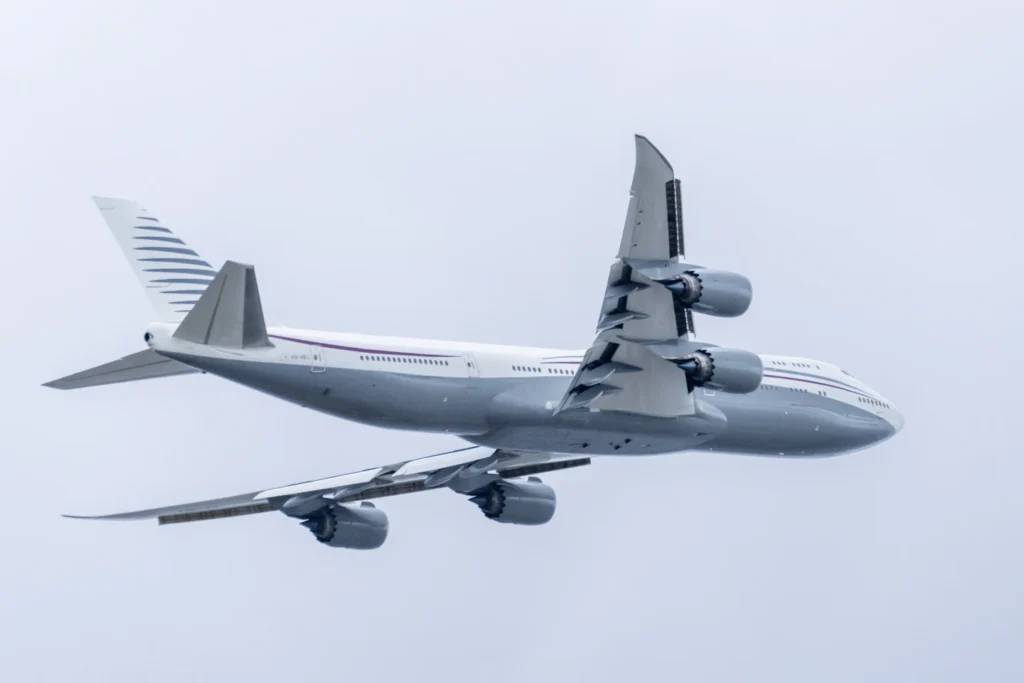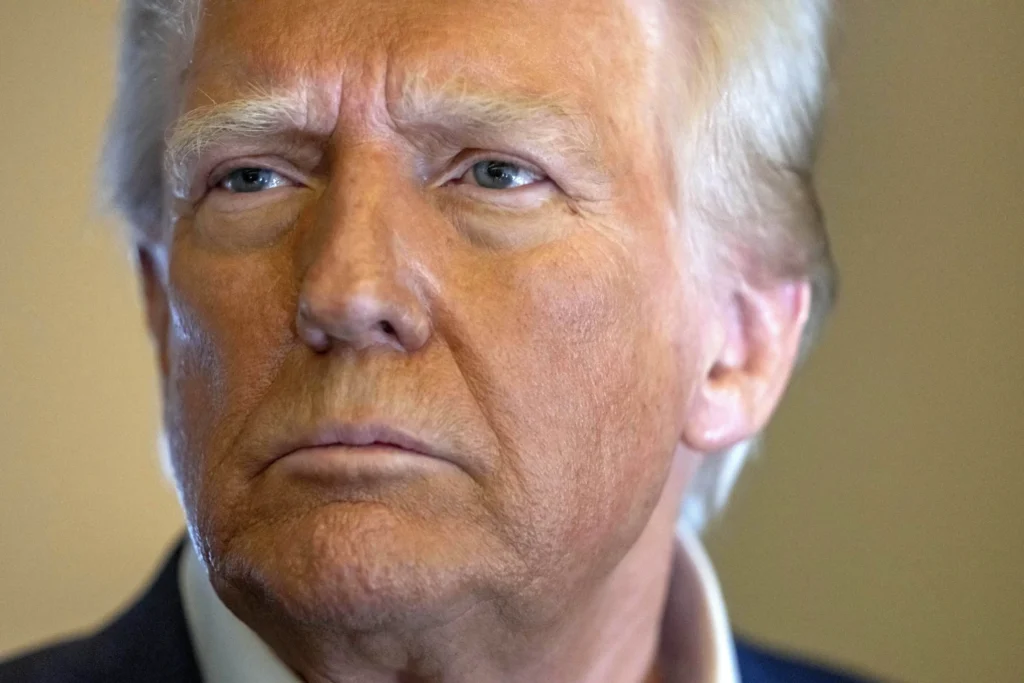WASHINGTON — President Donald Trump has come under fire after defending the prospect of accepting a luxury Boeing 747-8 jet from the Qatari royal family during his upcoming Middle East trip, arguing the aircraft could serve as a temporary replacement for the aging Air Force One fleet at no cost to U.S. taxpayers.

The gift — which Trump lauded as “fiscally smart” in a social media post late Sunday — has not been finalized, but the Qatari government confirmed discussions are underway between its Ministry of Defense and the U.S. Department of Defense. If approved, the aircraft would be transferred for presidential use until near the end of Trump’s second term in 2029, before being handed over to his planned presidential library’s foundation, according to an ABC News report.
“So the fact that the Defense Department is getting a GIFT, FREE OF CHARGE, of a 747 aircraft to replace the 40-year-old Air Force One, temporarily, in a very public and transparent transaction, so bothers the Crooked Democrats that they insist we pay, TOP DOLLAR, for the plane,” Trump wrote.
The aircraft’s transfer — expected to be announced during Trump’s visit to Qatar, Saudi Arabia, and the United Arab Emirates — has stirred sharp criticism from ethics watchdogs and lawmakers. Critics argue it would represent an unprecedented and potentially unconstitutional gift from a foreign government to a sitting U.S. president.
Senate Minority Leader Chuck Schumer, D-N.Y., mocked Trump’s embrace of the offer. “Nothing says ‘America First’ like Air Force One, brought to you by Qatar,” he said, calling it “premium foreign influence with extra legroom.”
Experts point to the U.S. Constitution’s Emoluments Clause, which prohibits officeholders from accepting gifts or payments from foreign states without congressional approval. “Trump seems committed to exploiting the federal government’s power not for policy goals, but to accumulate personal wealth,” said Kathleen Clark, a government ethics expert at Washington University in St. Louis.

Despite the scrutiny, White House officials are reportedly preparing a legal defense to justify accepting the plane, arguing the transaction can be structured to comply with federal ethics rules.
The aircraft in question is a version of the Boeing 747 Trump toured earlier this year at Palm Beach International Airport. Although it lacks the advanced survivability and security features of the current Air Force One fleet, defense officials believe it could be outfitted with secure communications and limited countermeasures in time for presidential use.
Still, the plane would fall short of the current VC-25A models — both of which are over 30 years old — and the long-delayed VC-25B replacements. Notably, neither the Qatari aircraft nor the VC-25Bs will include air-to-air refueling capability, which allows the president to stay airborne indefinitely during emergencies.
Critics have also raised questions about the Trump Organization’s expanding ties in the Middle East. The president’s family business, now managed by sons Donald Jr. and Eric Trump, is developing a luxury golf resort in Qatar in partnership with Qatari Diar, a state-backed real estate firm. Qatar is also home to Qatar Airways and holds significant influence through its sovereign wealth fund.
While administration officials downplayed concerns about conflicts of interest, pointing to a voluntary ethics agreement that bars direct deals with foreign governments, the pact still allows business dealings with foreign private companies — a looser standard than Trump’s first-term ethics policy.
Jordan Libowitz, of Citizens for Responsibility and Ethics in Washington, said the gift would be without precedent. “The totality of gifts given to a president over their term doesn’t get close to this level,” he said. “You have to ask, if he makes foreign policy — especially in regards to the Middle East — how much is he being influenced by his gifts and his business deals.”
Trump previously faced multiple lawsuits accusing him of violating the Emoluments Clause during his first term. Those cases were dismissed as moot in 2021 after the Supreme Court ruled that the issue was no longer relevant once Trump left office.
The current debate reignites long-standing concerns about the intersection of Trump’s political power and his global business interests, especially in regions where his administration is now heavily engaged in diplomacy and defense strategy.


